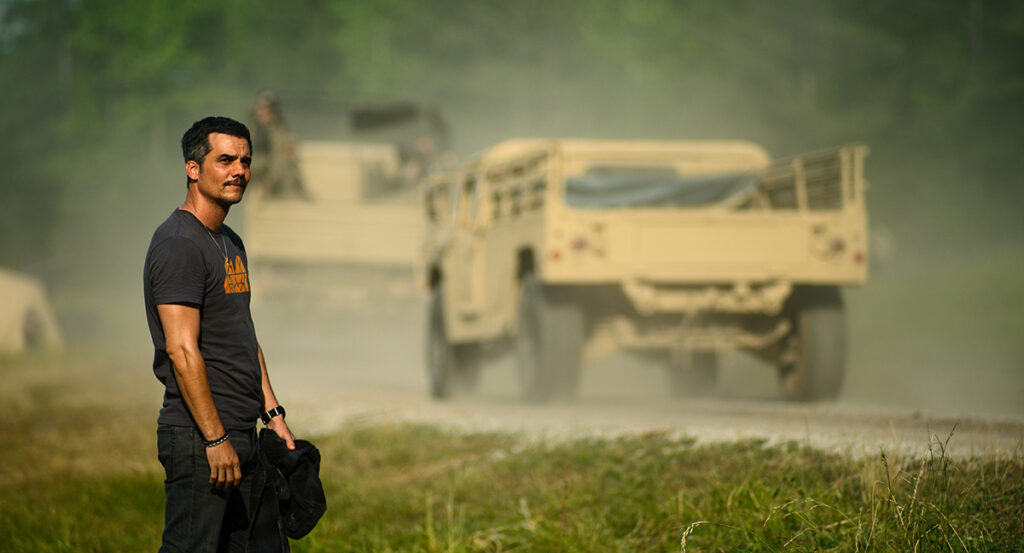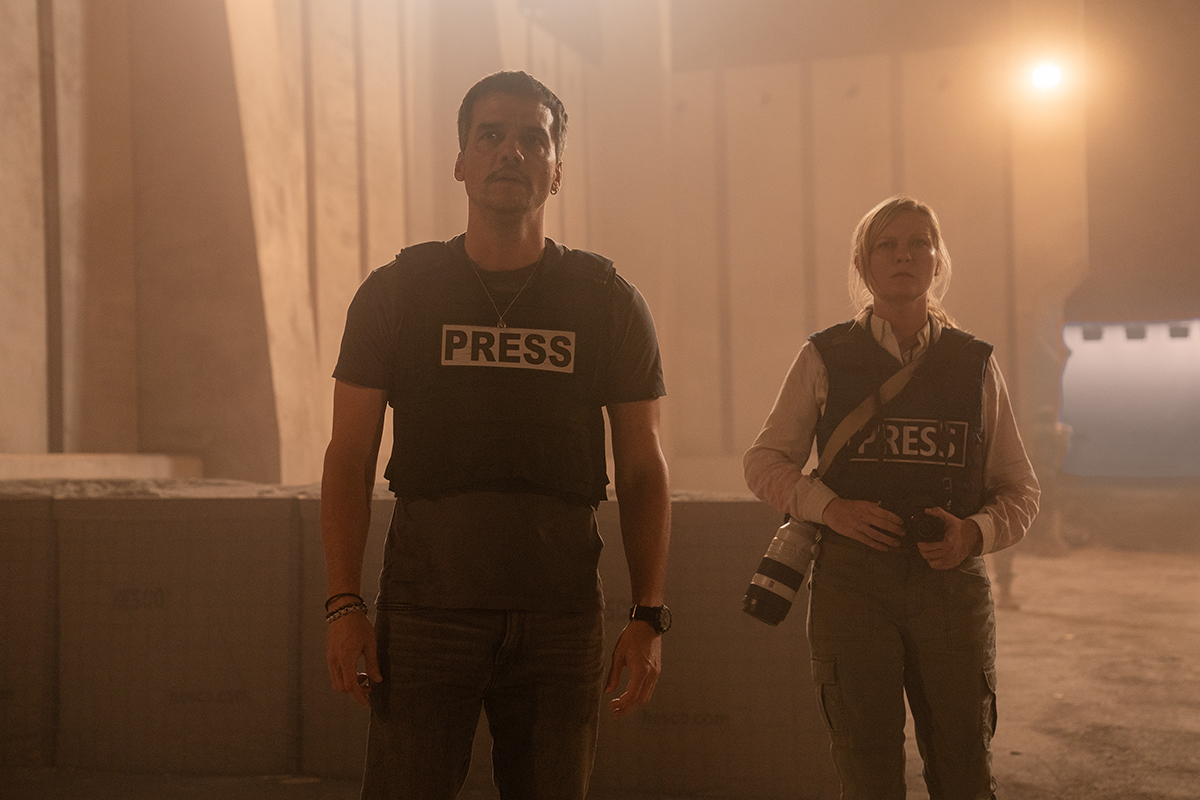“I myself, I am a journalist. I graduated as a journalist, and I have many friends that are journalists,” said Wagner Moura. The actor, best known for his portrayal of Pablo Escobar in Narcos, didn’t have to go too far in his research for his latest role as Joel in A24’s Civil War. “I am very happy that this film is also about journalism and the importance of journalism in this polarized world especially.”
Civil War, the latest from director Alex Garland (Ex Machina) follows three military war journalists – Joel (Moura), Lee, (Kirsten Dunst – Power of the Dog) and Jessie (Cailee Spaeny – Priscella) as they make their way up North en route to Washington, DC. Their goal is to get an interview with the President of the United States (Nick Offerman – Parks and Recreation) as the country he leads is currently embroiled in a Civil War.
In this near-future America, the Commander-in-Chief refuses to leave office and Americans are at war against one another. The three journalists are there to document and put on display, not judge.
“We’re not here to answer anything but to raise questions and people will have their own interpretations of what they saw,” Moura told LatinaMedia.Co moments before the film premiered at SXSW. “I think [the audience] is gonna go with more questions, which is basically what good art should be about right?”
Moura, born in Brazil, has been involved in political conversation for a long time. Back in 2019, he directed Marighella, about Carlos Marighella, a writer turned politician who led the armed struggle against the dictatorship in Brazil from the mid 1960’s to the mid 1980’s. Marighella was actually censored by then Brazilian President Jair Bolsonaro, who claimed the story celebrated a terrorist.
With Civil War, Moura is hoping for a conversation about democracy at the minimum among those who see the film – and that’s a lot as the film easily hit the #1 spot at the box office in its opening weekend. “The wave of discredit in a democratic institution is a very dangerous thing,” Moura adds. “Democracy is an important thing. Not only voting is an important thing, but supporting the institutions. You can criticize them, you can work for them to become better institutions.”

“The whole world is very polarized, which is a very scary thing,” Moura said. And Civil War not only proves the importance of journalists, it shows us a potential consequence of not having them in a democracy. I stop short of calling it a love letter to photojournalists only because I want to be careful not to romanticize the occupation.
As Moura himself said at the film’s premiere, “What I realized is that [being a civilian/journalist in a war zone is] pretty similar to what happens to soldiers. You live such an incredibly crazy experience in a war zone that when you come back home your life sort of stops making sense.”
While there are a number of takeaways in Civil War, one of the most important is that war journalists have an extremely difficult job and their occupation could not be more vital. Can you go and watch Civil War as just an entertaining movie? Sure you could. But you would be missing out on one of the most important messages cinema is delivering this year. No matter why you see it, I recommend seeing it period – on the biggest screen possible.

